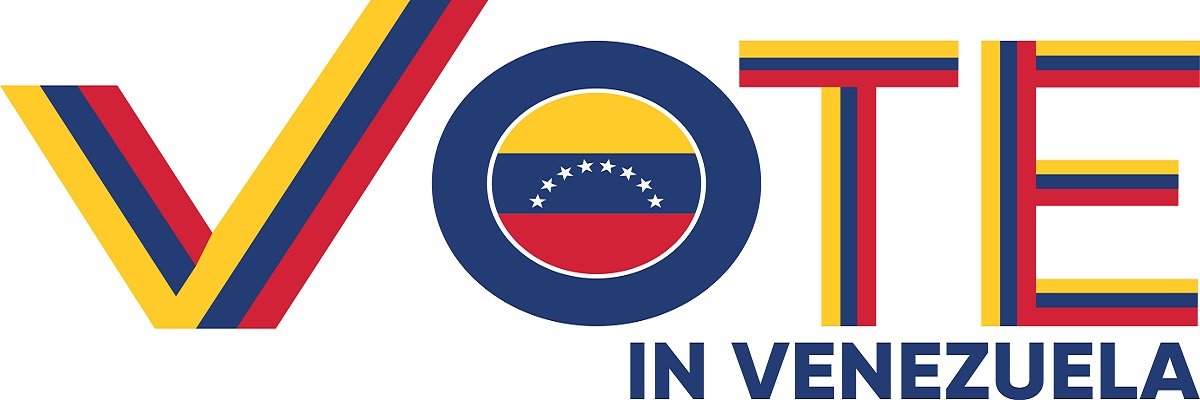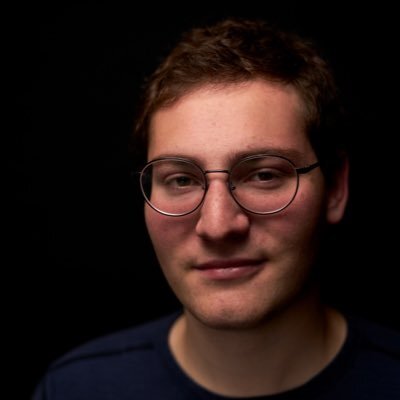Diplomacy
Explainer: Venezuela's 2024 Presidential Elections

Image Source : Shutterstock
Subscribe to our weekly newsletters for free
If you want to subscribe to World & New World Newsletter, please enter
your e-mail
Diplomacy

Image Source : Shutterstock
First Published in: Jul.11,2024
Aug.13, 2024
The big question for Venezuela’s July 28 elections may not be who voters prefer but whether their preference will be respected. The previous presidential election, which took place in 2018, was marked by irregularities. The reelection of Nicólas Maduro was considered illegitimate by the EU and countries around the world. Now, Maduro is seeking to extend his already decade-long reign with another six-year term. But will this race be free and fair? The fact that Venezuelans will even have the chance to go to the polls was not a given just a few months ago. The framework for this election was established in through the Barbados Accords, signed in October 2023 by the Maduro government and an alliance of opposition parties known as the Unitary Platform. The agreement set out conditions for the election, including that it must take place in the second half of this year, electoral reforms must be made, and international observation must be allowed. It also covered guarantees for the opposition’s participation and primary election process. The United States, which was not party to the accords, agreed to drop some sanctions to get Maduro to stick to his Barbados pledges. A few conditions have been met. The opposition did have its primary in October 2023. And, Maduro set the date for July 28—his deceased predecessor Hugo Chávez’s birthday, marking a date that is early but within the promised range. But other promises have been violated, with one key example being the January disqualification of presidential candidate Maria Corina Machado, who won the opposition primary with 93 percent of the vote. This prompted international outcry and the resumption of some sanctions. Now, the Unitary Platform has a new candidate, former diplomat Edmundo González Urrutia, and polls suggest he has a commanding lead of as much as 50 points over Maduro. What is González proposing? And how might Maduro undercut his rivals? AS/COA Online covers the electoral context and the candidates.
Venezuela’s election is being overseen by the country’s Electoral Council (CNE). While the body once included members seen as part of the opposition, in June 2023, the government-controlled constituent assembly replaced all 15 members to create an unanimously pro-Maduro council. So far, the CNE has undertaken several moves that watchdogs and foreign observers view as anti-democratic, such as the disqualification of opposition parties and candidates. Under the Barbados Accords, the CNE was tasked with updating the electoral registry. Currently, the roll includes about 21.6 million of Venezuela’s 28.8 million citizens. Of the about 8 million Venezuelans who live outside the country, only about 228,000 are registered abroad. That’s because the rules for absentee voting in Venezuela are onerous, requiring voters to be registered at a foreign address for at least three years and living in that place legally. Those seeking refugee or asylum status are banned from participating. Moreover, registered voters must go to a consulate to cast their ballots. But in many countries, such as the United States, Venezuelan government buildings have been shuttered, leaving no available voting sites. Meanwhile, the October 2023 opposition primary, which was independently organized and had more relaxed registration rules, attracted 2.4 million voters from abroad. Even for those living in the country, registration remains difficult, as it must be performed at official buildings in state capitals. In 2023, it was estimated that there are 3.5 million potential new voters who remain unregistered in the country. The CNE is also in charge of facilitating the participation of international electoral observers. Under the Barbados Accords, the Maduro regime promised that missions from bodies like the EU, the UN, the African Union, and the Carter Center would be able to observe the election. However, the regime revoked the EU’s invitation in May. Other groups, like the Carter Center and the African Union, are still slated to observe with small missions. Aside from the CNE, the Venezuelan military plays a role in overseeing the elections. Historically, the military has been loyal to Maduro, helping him stay in power. However, the military might be key to guaranteeing that the will of the voters is respected. “They will see and they will know if a major fraud is committed,” explained AS/COA Senior Director Guillermo Zubillaga. “The military will be the deciding factor.” Machado has already called for the military to guarantee a democratic transition.
Maduro took over the reins of the country after the death of his mentor, Chávez, in 2013 and he has overseen the acceleration of the country’s democratic and economic collapse ever since. From 2014 to 2021, Venezuela’s GDP shrank nearly three-quarters. The country has seen a small amount of growth since then, but it remains bogged down by hyperinflation, a debt load of $154 billion, mass emigration, and a crippled oil sector. His career grew in Chávez’s shadow. After working as a bus driver and trade unionist, he was elected to the National Assembly in 2000. From there, he served as minister of foreign affairs (2006-2012), vice president (2012-2013), and acting president once Chávez passed. He declared himself victorious in a 2013 presidential special election with 1.6 percent more of the vote than his closest rival. The opposition protested against vote-rigging and Maduro’s unfair use of state resources to campaign. As president, Maduro’s ideological commitment to Chávez’s Bolivarian Revolution has seen him stack institutions with allies, advance economic policies that maximize state control, and pursue a foreign policy agenda in opposition to the United States. In turn, Venezuela has sunk to the bottom of global indexes focused on freedom and democracy amid shrinking checks and balances; chavistas control the country’s judiciary and electoral courts. The opposition did control the National Assembly after 2015 elections but, in 2017, the country’s top court dissolved the legislature. That same year, Maduro called for the election of a constituent assembly in a contest boycotted by the opposition. The constituent assembly has now usurped the National Assembly to become the de facto legislating body. Maduro has used his control of the courts and the legislature to tilt the playing field in his favor in this year’s elections. He’s jailed more than 270 dissenting voices, stacked the members of the electoral court, and disqualified presidential candidates. Despite these maneuvers, Maduro polls with as little as 8 percent of the vote in the July elections. How might he still win? He’s hoping the strong chavista party structure can aid his campaign. He also might leverage clientelist networks. Already, Maduro has increased public spending by 80 percent from January to May and raised the monthly income for public workers. But waning enthusiasm and state resources might hamper the chavistas’ electoral abilities. “In the past, they’ve been able to mobilize the party members and loyalists, before and on the day of the election. This year, that ability is in question,” said Zubillaga. Maduro maintains a prolific media presence in the country, appearing across television and radio. Opposition figures, meanwhile, are barred from appearing on most radio and TV stations. And, Maduro is tapping into Tik Tok, expanding his use of social media to portray himself as charismatic, to appeal to youth voters. Polling shows that this group continues to be the most supportive of the opposition.
The 73-year-old former diplomat and academic did not intend to become the presidential hopeful for the Venezuelan opposition. Originally a placeholder, González was affirmed as the official nominee after substitutes for Machado, like academic Corina Yoris, were disqualified. But even if he was not so well known a few months ago, González now leads polls and, alongside Machado, headlines large rallies across the country. Pitching himself as a reconciliation candidate, his platform articulates a transition back to a pluralistic democracy, touching on themes of amnesty for the Maduro regime and rebuilding institutions. Outside of a focus on facilitating a democratic transition, González defers to the political program of Machado, noting that she, not him, was the primary voters’ choice. She has championed stabilizing the country’s macroeconomics by developing its energy reserves, as well as promoting nearshoring, and investment in infrastructure. González also references his long tenure in Venezuela’s foreign service to divorce himself from any particular political ideology. He highlights that he served successive administrations during posts in Algeria, Argentina, Belgium, El Salvador, and the United States. In an interview with El Pais, he described himself “as a democrat, a moderate person, far from extreme positions.” Still, even if González is voters’ top choice, worries persist that he will be disqualified before or, should he win, after the election. Four members of his team have already been detained on charges of instigating hate and conspiracy.
Eight other candidates will appear on the ballot for president. While there was potential for some of these candidates to split opposition votes, so far none of them poll above 2 percent in the May 2024 Meganalisis poll. Still, they are muddling an already confusing ballot. Candidates appear under each party they represent, meaning there are 38 headshots even though there are ten candidates. Maduro appears in 13* places; Gónzalez just three times. Many of the other candidates—such as evangelical pastor Javier Bertucci, lawyer Antonio Ecarri, and comedian Benjamin Rauseo—are trying to present themselves as a third way, rebuking chavismo but criticizing the Unitary Platform for either its strategy or its policies. *Editor's note: The original version of this article stated that Maduro appears 14 times on the electoral ballot.
First published in :

Chase Harrison is the editorial manager at AS/COA Online. His work, which has been cited in numerous U.S. Congressional reports, has also appeared in Americas Quarterly and WPR.
Unlock articles by signing up or logging in.
Become a member for unrestricted reading!